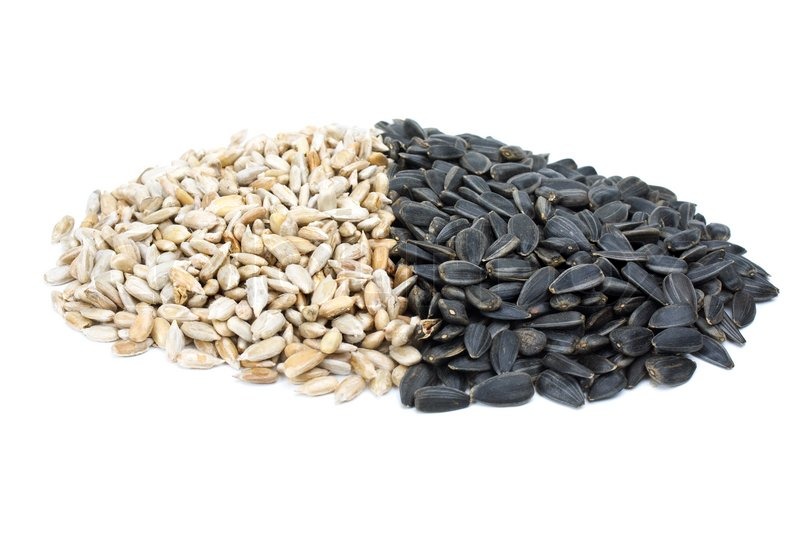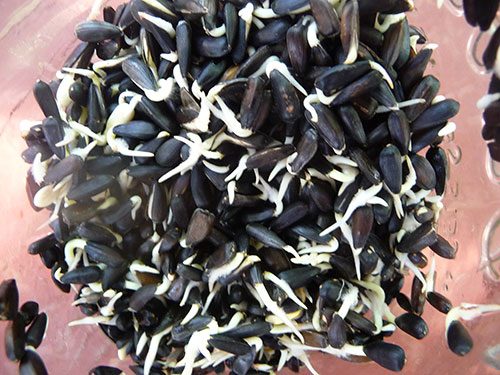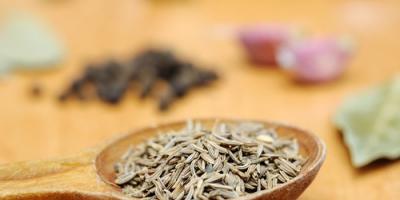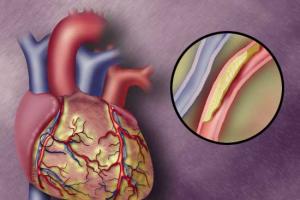Nature itself takes care of human health, presenting him with her amazing gifts. Sunflower seeds, inconspicuous at first glance, contain a huge supply of useful substances necessary for the normal functioning of the body. For centuries, this product has been eaten without thinking about its true properties.
Sunflower seeds, the benefits and harms of which are fully known today, should definitely be included in the daily diet for people of all ages. In terms of their nutritional value, they are in no way inferior to meat or eggs, while they are much easier to digest, and in terms of the amount of vitamins and minerals, they are completely ahead of most foods actively consumed by humans.
Unique composition
Before starting a conversation about the benefits and harms of sunflower seeds, it is worth studying their composition. 100 grams of purified product contains:
- fats - 52.9 g, most of which are mono- and polyunsaturated (linoleic, oleic acids) useful for the body;
- proteins - 20.7 g, more than half are essential amino acids (tryptophan, isoleucine, methionine, cysteine), as well as non-essential ones (aspargin, glutamine);
- carbohydrates - 10.5 g.
The calorie content of sunflower seeds is 560 kcal in raw and 601 kcal in purified form (per 100 g of product). The kernels also contain fiber and other dietary fiber (8.6 g).
As for the chemical composition of sunflower seeds, it is very diverse. Especially seeds can boast of a high content of B vitamins. Most of all they contain vitamin B1 - 122.7% of the daily requirement needed by a person, slightly behind B6 (67.3%) and B9 (56.8%), close the positions of B5 and B2 with 23 and 20%, respectively.
Most of the beneficial properties of sunflower seeds are attributed to the record content of vitamin E (208% of the daily requirement), as well as PP (up to 78.5%). In a small amount, the seeds contain vitamins A, C.
The mineral composition of sunflower seeds is extensive. 100 grams of raw product contains: copper (180% of the daily requirement), magnesium (98%), selenium (96%), phosphorus (83%), manganese (81%), zinc (42%), iron (29% ), potassium (26%) calcium (8%).
When buying, you should pay attention to the compliance of sunflower seeds with GOST, namely:
- The shell should be uniform in color without visible damage, mold deposits.
- The smell should not be musty or have foreign impurities.
- Only under these conditions can we talk about the safety of the product.
Varieties of sunflower seeds
 Most often, ordinary black sunflower seeds are eaten, but there are alternatives. Among them are white and striped seeds, which are large in size, as well as lower in fat.
Most often, ordinary black sunflower seeds are eaten, but there are alternatives. Among them are white and striped seeds, which are large in size, as well as lower in fat.
White sunflower seeds are considered a relatively new product that hit the shelves from Turkey. This variety differs in the size and color of the shell, nutty taste, as well as a high content of vitamins A and D. In addition, when cleaning, they do not get their hands dirty, they are easier to get rid of the shell, so they are recommended to be eaten exclusively raw.
There are also hybrid seeds of sunflower and corn, which are rarely eaten directly, but are used to increase the yield, the production of vegetable oil.
The benefits of sunflower seeds
 The benefits of sunflower seeds for the body are due to their rich chemical composition. A large amount of vegetable fats, vitamins, antioxidants prevent premature aging of tissues, reduce cholesterol levels. To do this, it is enough for an adult to eat about 50 grams of seeds daily, thereby satisfying the daily need for vitamin E.
The benefits of sunflower seeds for the body are due to their rich chemical composition. A large amount of vegetable fats, vitamins, antioxidants prevent premature aging of tissues, reduce cholesterol levels. To do this, it is enough for an adult to eat about 50 grams of seeds daily, thereby satisfying the daily need for vitamin E.
The symbiosis of vitamins with minerals makes sunflower seeds very useful:
- Neutralizes the action of free radicals that destroy cell membranes, brain cells.
- It has an anti-inflammatory effect on the joints, respiratory organs.
- Reduces the risk of tumors due to the high content of selenium.
- Iron ensures the normalization of hematopoietic processes, preventing anemia.
- Significantly improves the condition of the skin, nail plates, hair. The complexion becomes healthy, fresh thanks to zinc.
- Vitamins of group B increase efficiency, endurance.
Organic acids contained in sunflower seeds are additionally responsible for antioxidant processes: quinic, chlorogenic, coffee.
In large quantities, the seeds contain a number of essential essential amino acids, including arginine. The latter helps to strengthen the walls of blood vessels and arteries, which contributes to the normal functioning of the heart and the entire circulatory system.
Due to the high content of vitamin B1 in sunflower seeds, the body's production of a sulfur-containing amino acid, homocysteine, is significantly reduced, which can provoke the formation of blood clots and the development of coronary heart disease.
Medicinal properties
 Regular consumption of sunflower seeds in food:
Regular consumption of sunflower seeds in food:
- Reduces the risk of heart attack, atherosclerosis, some infectious, skin diseases.
- It fights osteoarthritis, asthma, muscle pain, lowers blood pressure, increases the body's endurance due to the high content of magnesium.
- It helps to significantly reduce cholesterol levels due to phytosterols that reduce its absorption, B vitamins, as well as high-density lipoproteins, the so-called "good cholesterol".
- Normalizes the mineralization of bone tissue due to the high content of iron, calcium, zinc, selenium, manganese.
- Improves the synthesis of red blood cells, hormones, enzymes.
- Helps women relieve menopause symptoms.
The benefits of sunflower seeds for the body are obvious, but this applies only to raw, dried or properly roasted. Overcooked seeds will only hurt, because they contain more decay products than useful substances.
One of the characteristics of sunflower seeds is the possibility of long-term storage without loss of useful properties. This is due to the presence of a strong, airtight shell that does not allow the kernel to oxidize. That is why it is recommended to buy unpeeled seeds that have retained all their benefits. Purified ones only lose some of their useful qualities, and if storage conditions are violated, they can harm the body.
Contraindications
 Sunflower seed has beneficial properties only when used in moderation. It is quite difficult to break away from delicious seeds, especially since the process itself calms the nerves well. It is at this stage that it is easy to exceed the norm necessary for maintaining health, and yet only 100 grams of seeds is equivalent to a bar of chocolate or almost a whole loaf of wheat bread. Excessive consumption of seeds can lead to rapid weight gain. Those who want to lose weight or who are obese are recommended to eat this product in very small quantities or refuse it altogether.
Sunflower seed has beneficial properties only when used in moderation. It is quite difficult to break away from delicious seeds, especially since the process itself calms the nerves well. It is at this stage that it is easy to exceed the norm necessary for maintaining health, and yet only 100 grams of seeds is equivalent to a bar of chocolate or almost a whole loaf of wheat bread. Excessive consumption of seeds can lead to rapid weight gain. Those who want to lose weight or who are obese are recommended to eat this product in very small quantities or refuse it altogether.
In case of throat diseases, it is also better to refuse seeds, since they seriously irritate the mucous membrane, can aggravate the disease, and in some cases even damage the vocal cords.
Despite the medicinal properties, sunflower seed has contraindications:
- Ulcers or gastritis.
- Gastric colic.
- Gout.
- Allergy or individual intolerance.
Sunflower seed husks can damage tooth enamel. If you systematically gnaw a large number of seeds, the enamel may begin to crumble, and tartar will appear on it. This can be avoided if there are already peeled seeds or remove the husk by hand.
The abuse of seeds can also lead to nervous breakdown and a number of kidney diseases. This is due to the presence of cadmium, which is harmful to the human body, in the composition of sunflower seeds.
Overeating can lead to a feeling of heaviness in the stomach, acute abdominal pain, diarrhea. But the widespread belief that sunflower seeds cause inflammation of the appendix is not justified and is more of a rumor than a fact.
Seeds fried with salt increase blood pressure, can provoke a number of diseases of the cardiovascular system, this is due to the high content of sodium salts. Hearts should refrain from eating such seeds, preferring dried or raw.
There is, albeit insignificant, but the risk of an overdose of vitamin B6, which will affect the loss of muscle coordination, tingling in the limbs.
Sprouted sunflower seeds
 Many people use sprouted sunflower seeds to treat or prevent a number of diseases, the benefits and harms of which should also be known. They, like ordinary seeds, contain a record amount of vitamins E and B. These vitamins are responsible for the normal functioning of all body systems, including the cardiovascular, nervous, muscular, genitourinary, as well as individual organs - the liver, eyes.
Many people use sprouted sunflower seeds to treat or prevent a number of diseases, the benefits and harms of which should also be known. They, like ordinary seeds, contain a record amount of vitamins E and B. These vitamins are responsible for the normal functioning of all body systems, including the cardiovascular, nervous, muscular, genitourinary, as well as individual organs - the liver, eyes.
The obvious benefit of germinated sunflower seeds lies in the high content of fiber, which is necessary for the normal functioning of the gastrointestinal tract and, as a result, a complete cleansing of the body from toxins, toxins, and other harmful substances. Sprouted seeds eaten daily will help stabilize blood pressure, improve blood condition, and reduce the risk of developing cancer.
What is useful for sunflower seeds in germinated form is hidden inside:
- chromium and lithium are rare trace elements necessary to prevent nervous exhaustion;
- folic acid, especially recommended for pregnant women, as it ensures the normal development of the unborn child;
- potassium - maintains the acid balance of the body, provides muscle tone.
The systematic use of sunflower sprouts in food guarantees increased immunity, normalization of metabolism, and increased efficiency. You can eat them at any age. Particular attention to this product should be paid to those who suffer from sexual dysfunction, visual impairment, high cholesterol.
It should be noted separately that germinated sunflower seeds are a balanced food that is easily digested, saturating the body with essential substances.
Harm of germinated seeds
You should not abuse this product, overeating can cause flatulence and pain in the abdominal cavity. Sprouts should not be eaten by children under 12 years of age and people with individual gluten intolerance. Caution should be taken to such food for ulcers or those who suffer from urolithiasis.
No related news








